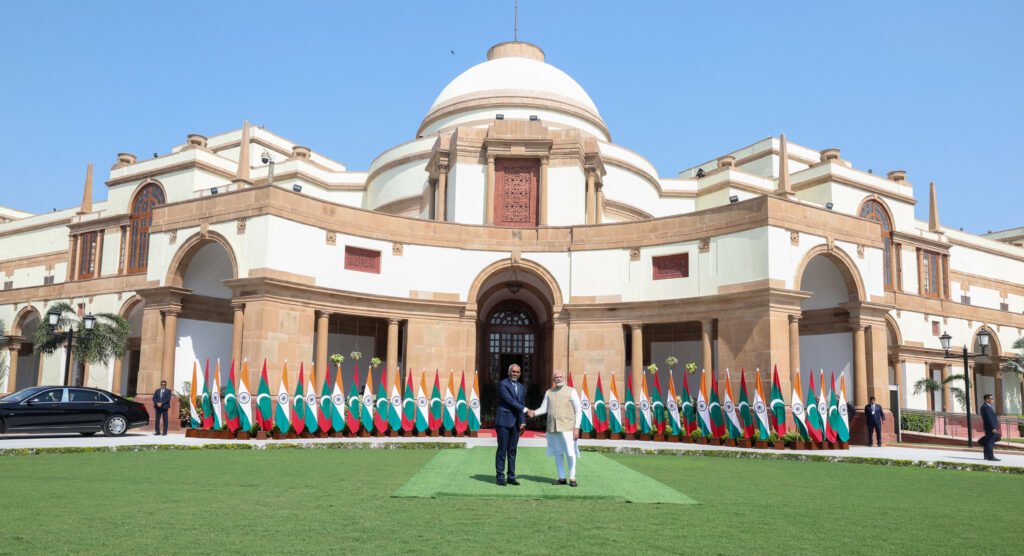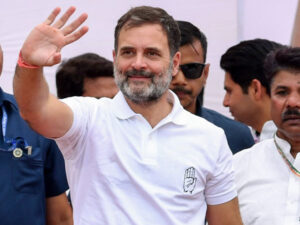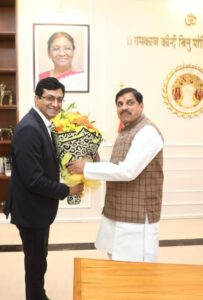
PM meets the President of Maldives, Dr. Mohamed Muizzu at Hyderabad House, in New Delhi on October 07, 2024.
Maldives President Mohamed Muizzu has embarked on his first official bilateral visit to India, a significant move aimed at restoring and enhancing diplomatic relations between the two neighboring countries.
Upon his arrival, Muizzu received a warm welcome from India’s President Droupadi Murmu and Prime Minister Narendra Modi during a formal ceremony at Rashtrapati Bhavan in Delhi. Today, he is scheduled to engage in crucial bilateral discussions with Prime Minister Modi, following preliminary talks that took place on Sunday with India’s External Affairs Minister, S. Jaishankar.
Accompanied by his wife, President Muizzu’s four-day diplomatic mission is focused on mending ties that have recently faced challenges. His last visit to Delhi was in June for PM Modi’s swearing-in ceremony, a moment that showcased cordiality amid existing tensions.
The Maldives is currently grappling with significant economic difficulties, which Muizzu aims to address during this visit. The nation’s financial situation has reached a critical level, with foreign exchange reserves plummeting to just $440 million, raising alarms about its debt servicing capabilities. In light of these challenges, the Maldives is looking to India for financial assistance and economic collaboration.
Relations between the two nations suffered last year following contentious remarks from three Maldivian ministers advocating for the withdrawal of Indian troops from the Maldives. This led to a backlash in India, resulting in a boycott movement that adversely affected the Maldives’ tourism-dependent economy. Acknowledging the repercussions, Muizzu is now focused on repairing these relations and has expressed a commitment to strengthening the partnership with India.
A significant aspect of Muizzu’s visit has been his assurances regarding the Maldives’ expanding partnership with China, which has raised concerns in India. Often perceived as having close ties to China, Muizzu has clarified that this relationship will not compromise India’s security. He stated, “Maldives will never endanger India’s security. India is an important partner and a friendly nation, and our relationship is based on mutual respect and shared interests.”
These comments are likely to alleviate some of India’s apprehensions about China’s growing influence in the Indian Ocean region, highlighting the delicate balance the Maldives must maintain in its foreign relations.
It is noteworthy that Muizzu’s rise to power was largely fueled by his “India Out” campaign, which tapped into nationalistic sentiments against foreign military presence in the Maldives. However, this campaign was more about opposing foreign troops generally rather than targeting India specifically. Since taking office, Muizzu has moderated his stance, emphasizing that the issue pertains to foreign military presence rather than the broader relationship with India.
Given the Maldives’ ongoing economic crisis, Muizzu’s current approach reflects a pragmatic shift, recognizing India’s vital role as a regional ally. As the Maldives faces dwindling reserves and escalating debt, the necessity for international collaboration, especially with India, has become increasingly clear.
During his discussions, Muizzu remarked on the enhanced understanding between the two nations, expressing optimism that his visit will foster even stronger bilateral ties.
President Muizzu’s visit to India signifies an important chapter in the evolving relationship between the two nations. Despite previous tensions, his reassurances regarding security and his commitment to strengthening ties indicate a positive trajectory for India-Maldives relations. As the Maldives navigates its economic challenges, India is poised to play an essential role as a key partner, with both countries dedicated to building on mutual respect and shared interests, laying the foundation for a more stable and prosperous future in the region.






